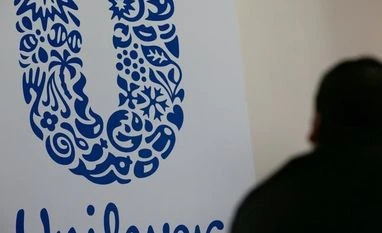Unilever reported a surprise pick up in quarterly sales growth on Thursday, boosting its argument that it can improve performance on its own after spurning a $143 billion takeover offer from Kraft Heinz in February.
The maker of Knorr soups and Dove soap, which earlier this month announced a business revamp in response to the takeover interest, said improving economies and rising commodity costs helped it to lift prices in the first quarter.
That offset a small dip in the volume of goods sold.
Chief Financial Officer Graeme Pitkethly said there was always a delay between economic improvements and a pick up in household spending and so Unilever expected a better performance in the second half of the year, helped also by its own easier year-on-year comparisons.
"We are seeing positive signs in the economy overall," he told Reuters, talking about a "bottoming out" of currency devaluations in places such as India, Indonesia and Brazil.
Unilever's underlying sales growth of 2.9 per cent topped analysts' expectations of 2.0 per cent and 2.2 per cent growth in the fourth quarter of 2016.
Also Read
Growth was led by emerging markets, while pricing added 3 per cent and the dip in volumes took off 0.1 per cent.
The results, which outshone those of rival Nestle, sent Unilever's shares up 1.5 per cent to 39.94 pounds, leaving them more than 19 per cent higher than before Kraft's unsolicited, and swiftly rejected, offer.
Nestle, the world's largest packaged food company, posted sales growth of only 2.3 per cent. Compared with Unilever, Nestle has much more exposure to the shrinking North American packaged food market, where a late Easter and one less trading day in the quarter compounded weakness due to changing consumer tastes and intense competition.
Even at Unilever, food was the weakest division, coming in flat, whereas the ice cream and tea business rose 5.4 per cent and home and personal care products rose 3.4 per cent.
Excluding the margarine and spreads business, which is to be sold, Unilever's group underlying sales would have risen 3.4 per cent. Pitkethly said it was "a bit of a relief" to be able to finally "engage wholeheartedly" with private equity suitors which have been circling the unit for some time.
NEW UNILEVER
In a statement, Chief Executive Paul Polman said the results reconfirmed the strength of Unilever's business model.
To appease investors, some of which were disappointed by the company's refusal to engage in takeover talks, Unilever announced plans this month aimed at lifting shareholder returns.
It said it aimed to cut more costs, boost margins, buy back shares, increase the dividend, sell or spin off its margarine business, combine its remaining food businesses into one unit and review its dual Anglo-Dutch structure.
"For Unilever, the future starts here," said Steve Clayton, fund manager of the Hargreaves Lansdown Select equity funds. "Their commitment to stronger capital and income returns to shareholders from a reinvigorated portfolio is hugely welcome."
With portfolio weightings nearing 5 per cent, Unilever is the largest position in the two funds Clayton manages, which together account for 505 million pounds.
Unilever's turnover rose 6.1 per cent to 13.3 billion euros ($14 billion) in the first quarter, including a foreign exchange boost of 2.4 per cent.
The company reiterated this month's forecast for 2017 sales growth of 3-5 per cent, with margins growing at least 80 basis points and a dividend increase of 12 per cent.
)